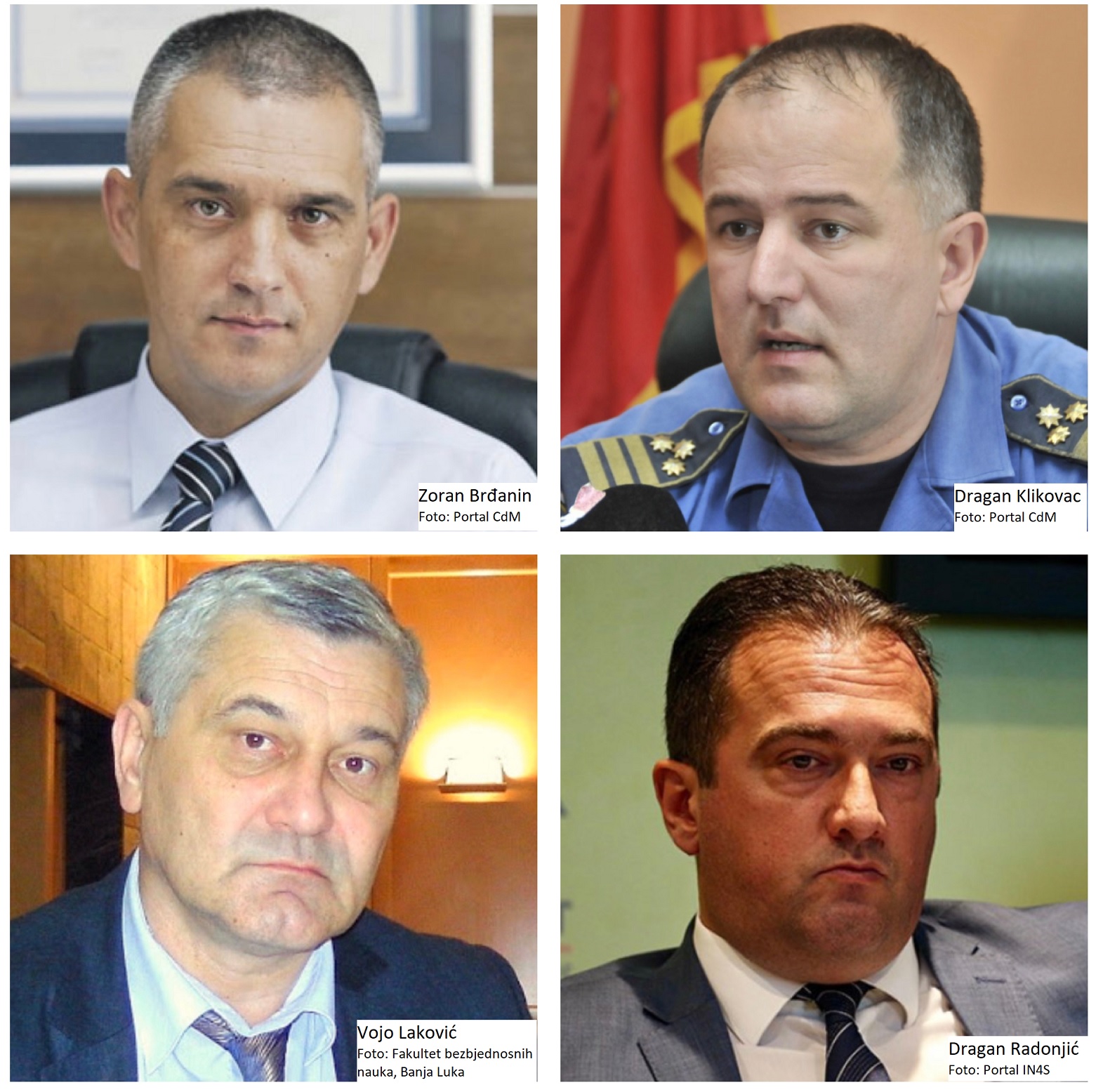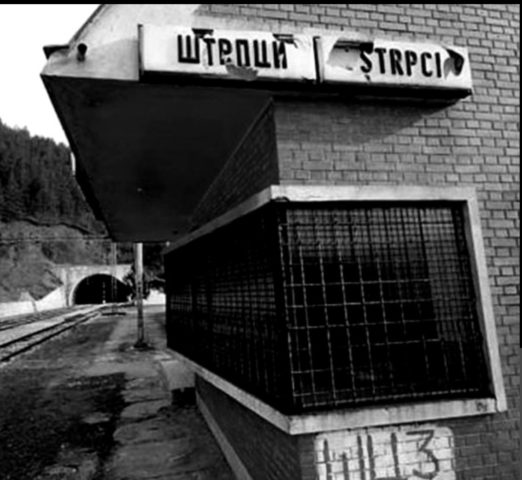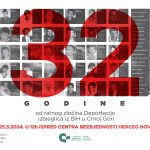
HRA OBSERVES INTERVIEWS WITH POLICE DIRECTOR CANDIDATES
19/02/2021HRA PROPOSALS TO THE GOVERNMENT OF MONTENEGRO
03/03/2021CRIME IN ŠTRPCI – 28 YEARS LATER

Foto: Portal Snews.rs
Today marks the 28th anniversary of the war crime committed by members of the Army of Republika Srpska at the railway station in Štrpci, on the border between Bosnia & Herzegovina and Serbia. They removed twenty passengers from a train traveling on the Belgrade-Bar route and murderer all of them. Of the twenty, eighteen were Bosniaks, one was a Croat and the identity of the last passenger is still unknown.
Human Rights Action (HRA) appeals for the perpetrators from the political and military circles of the Federal Republic of Yugoslavia and the Republika Srpska to be identified and punished. Furthermore, we appeal that efforts be made to discover the remains of all of the victims, and that the Montenegrin Government amend the law so as to provide social protection to the families of the victims of this crime as civilian casualties of war.
Relatives of the abducted passengers and their friends are laying flowers at a memorial in Podgorica and Bijelo Polje today – a monument to the victims of this crime was erected in Bijelo Polje in 2016, while in Podgorica there is a joint memorial to all civilian victims of the 1991-2001 wars in the former Yugoslavia.
Among the victims are: Esad Kapetanović, Ilijaz Ličina, Fehim Bakija, Šećo Softić, Rifat Husović, Halil Zupčević, Senad Đečević, Jusuf Rastoder, Ismet Babačić, Tomo Buzov, Adem Alomerović, Muhedin Hanić, Safet Preljević, Džafer Topuzović, Rasim Ćorić, Fikret Memović, Fevzija Zeković, Nijazim Kajević, Zvjezdan Zuličić and one unknown person. Of the twenty, ten were from Montenegro.
The victims were abducted from the train, taken to a school in the village of Prelovo near Višegrad, where they were robbed and beaten, and then transferred to the village of Mušići, near Višegradska Banja, where they were all killed and their bodies thrown into the Drina river. The oldest was 59 and the youngest 16 years old. The body of Halil Zupčević was only found in 2009 on the shore of Perućačko Lake, near Višegrad, and in 2010 the remains of Rasim Ćorić, Jusuf Rastoder and Ilijaz Ličina were found at the same location. The remains of other victims of this crime have not been found to date.
So far, only Nebojša Ranisavljević and Mićo Jovičić, members of the intervention company of the Višegrad Brigade of the Army of Republika Srpska named “Avengers”, have been convicted for this crime.
Ranisavljević was sentenced to 15 years in prison before the High Court in Bijelo Polje in 2003, while Jovičić concluded a plea agreement with the Prosecutor’s Office of Bosnia and Herzegovina in 2016, on the basis of which he was sentenced to five years in prison. Milan Lukić, the leader of this unit of the Army of Republika Srpska, was sentenced by the Hague Tribunal to life imprisonment for war crimes in Višegrad, but not for Štrpci. It was only in December 2019 that the Prosecutor’s Office of Bosnia and Herzegovina accused him of participating in this crime.
The trial of ten indictees for this crime has been pending before the Court of Bosnia and Herzegovina since 2015.
The trial of a part of Milan Lukić’s unit, namely his brother Gojko Lukić, Jovan Lipovac, brothers Duško and Ljubiša Vasiljević and Dragana Đekić, is also pending before the Special Court in Belgrade.
So far, none of the perpetrators and organizers of this crime from the political and military structures of the Federal Republic of Yugoslavia and the Republika Srpska have been prosecuted before any court.
In the criminal proceedings conducted against Nebojša Ranisavljević in Montenegro, it was established that the kidnapping in Štrpci was planned ahead and that the General Manager of the Belgrade Railway Transport Company (ZTP), Milomir Minić, had been informed in advance, that he had then informed the Ministry of Defence of Republic of Serbia, the Ministry of the Interior of Serbia, the State Security Service of Serbia and the Yugoslav Army. Mr. Šefko Alomerović, president of the Helsinki Committee for Human Rights from Sandžak, has publicly testified that he saw Vladimir Matović, a press adviser to FR Yugoslavia President Dobrica Ćosić, at a train station in Belgrade before the departure of the train, talking to a man suspected of aiding the kidnappers.
HRA points out that the family members of the victims of this crime in Montenegro have never enjoyed the status of civilian casualties of war under the Law on Veterans and Disability Protection (Official Gazette of the Republic of Montenegro, No. 69/03 and Official Gazette of Montenegro No. 21/ 08, 73/10, 40/11, 1/15, 52/16), because this protection is recognized only for family members of survivors – civilian war invalids, and not to family members of civilian casualties of war, unlike in Bosnia and Herzegovina.
In this regard, the HRA appeals to the Ministry of Finance and Social Welfare to initiate amendments to the existing law and to introduce civilian casualties of war and family members of civilian casualties of war as special categories who will also enjoy protection under this law.
The law does not regulate the issue of missing civilians in the war. In 2011, Montenegro ratified the UN International Convention for the Protection of All Persons from Enforced Disappearance. However, enforced disappearance is still not criminalized in the Criminal Code of Montenegro as a separate criminal offense. Montenegro still does not have a Law on Missing Persons, unlike Bosnia and Herzegovina and Croatia, which both have that law.







 English
English